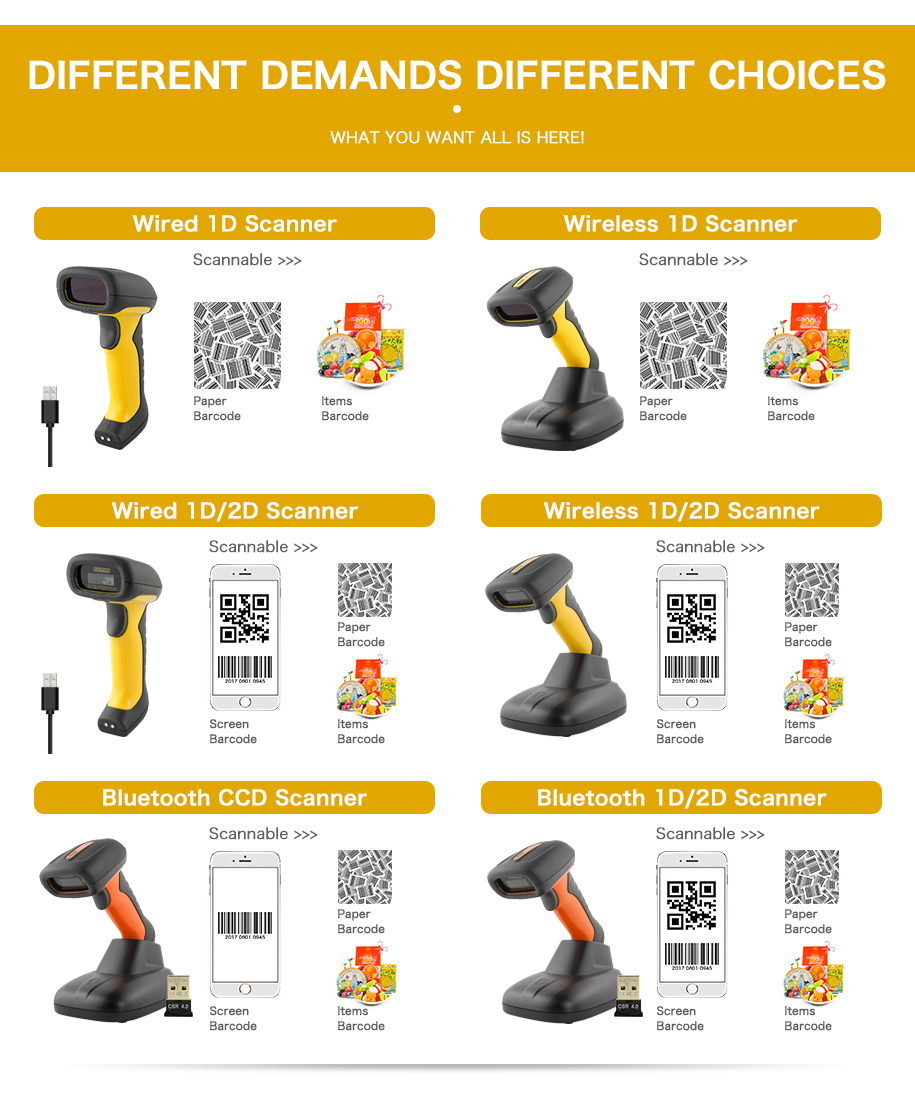https://www.youtube.com/@NETUMAIDC/videos
In the digital transformation of the manufacturing industry, barcode scanners have evolved from simple "data reading tools" to core equipment that connects the entire production, inventory, and traceability process. Unlike lightweight scanners used in commercial applications, barcode scanners for manufacturing face complex challenges such as dust, oil, and high-intensity operations. Their core features are built around the three goals of "stability and durability, efficient adaptability, and accurate traceability," making them a key support for improving production efficiency and management accuracy.
Strong environmental adaptability is a fundamental requirement for barcode scanners used in the manufacturing industry. The harsh working conditions of manufacturing workshops place stringent demands on equipment protection. Mainstream products generally meet IP65 or IP67 protection standards. IP65 protects against dust intrusion and low-pressure water jets, while IP67 allows for short-term immersion in water up to 1 meter deep and is completely dustproof, easily handling coolant splashes and oil deposits. Impact resistance is essential. Most scanners are drop-tested from 1.5-2 meters onto concrete, and heavy-duty models can even withstand drops over 3 meters, making them suitable for impact-prone applications like parts handling and equipment assembly. A wide operating temperature range is also crucial, spanning -20°C to 50°C, covering extreme environments like low-temperature warehouses and high-temperature welding workshops, ensuring stable operation even in the face of drastic temperature fluctuations.
Compatibility with all types of codes meets diverse traceability needs. Manufacturing involves a full range of coding scenarios, from part identification to finished product delivery. Therefore, barcode scanners for this application require robust decoding compatibility: they must support not only 1D codes like Code 39 and Code 128, but also 2D codes like QR Code and Data Matrix, and must also address the challenges of reading DPM codes. DPM (Direct Part Marking), a label-free barcode etched or printed on the surface of metal and plastic parts, is widely used in high-precision manufacturing applications such as automotive and aviation. Scanners require specialized image sensors and algorithms to accurately recognize laser- or chemically etched DPM codes, even on scratched or oily parts. To address blurred and damaged barcodes commonly found on the shop floor, scanners utilize dynamic focus, fill-light compensation, and digital signal processing (DST) to effectively address read failures caused by worn or unclear labels.
Barcode scanners for the manufacturing industry require flexible operation and connectivity options to adapt to diverse operational scenarios. Manufacturing operations are fragmented and complex, requiring scanners to offer diverse solutions: handheld scanners with ergonomic pistol-style grips reduce worker fatigue during extended inspections and inventory checks; fixed-mount scanners can be mounted on assembly line brackets for automated scanning of products on conveyor belts, adapting to the demands of automated production. Wireless connectivity is also crucial for barcode scanners used in the manufacturing industry. Bluetooth 5.0/5.1 and Wi-Fi 6 technologies ensure stable transmission in open environments up to 50-100 meters and are resistant to electromagnetic interference from motors and welding equipment. The offline storage function temporarily stores tens of thousands of data entries during network outages, automatically synchronizing them upon reconnection to prevent data loss. Furthermore, multiple interfaces, including USB, RS232, and Ethernet, ensure seamless integration with industrial computers and MES systems, breaking down data silos.
Furthermore, efficient data processing, durable hardware design, long-lasting battery life, and regulatory compliance and security complete the comprehensive feature set of barcode scanners used in the manufacturing industry. Barcode scanners for manufacturing applications can decode at speeds of 30-50 barcodes per second, with some models supporting simultaneous multi-code reading, meeting the demands of high-speed assembly lines. Industrial-grade materials and a keypad with a lifespan of over one million presses ensure durability for 24/365 operations. A battery capacity of over 2000mAh and fast charging technology enable 8-12 hours of continuous use. CE and FCC certifications, along with data encryption protocols, provide security for specialized manufacturing applications such as medical and aviation.
The Netum GY Series Industrial Barcode Scanner is a high-performance handheld 2D barcode scanner designed by NETUM for demanding industrial environments. Equipped with a 1280*1080 high-resolution megapixel CMOS sensor, the GY Series offers superior barcode recognition capabilities, enabling fast and accurate scanning of a wide range of 1D and 2D barcodes, including low-contrast, damaged, or distorted barcodes, meeting diverse scanning needs in industrial environments.
The GY Series industrial barcode scanner is IP67 certified and features a dual-material housing of soft TPU and hard ABS, molded using two-shot injection molding. Its specially reinforced internal components effectively withstand harsh environments such as moisture and dust, as well as accidental drops and shocks, ensuring long-term stable operation even under extreme operating conditions.
Equipped with a professional-grade decoding engine, a high-brightness LED illumination system, and a highly sensitive optical module, the GY Series industrial barcode scanner boasts a theoretical service life of up to 100,000 hours, significantly reducing maintenance costs. Designed with the needs of industrial users in mind, this device offers exceptional durability and reliability, making it an ideal choice for industries such as warehousing and logistics, manufacturing, and retail management.

Netum is a national high-tech enterprise dedicated to intelligent identification applications, integrating R&D, production, sales, and service. Its main products include barcode readers, 2D barcode scanners, scanning platforms, wearable "Lord of the Rings" scanners, mobile handheld barcode scanners, DPM metal recognition scanners, long-range high-precision barcode scanners, industrial IP67 waterproof barcode scanners, embedded scanning modules, fixed-line high-speed scanners, data collection terminals, and high-definition scanners. These products are widely used in commerce, taxation, tobacco, logistics and warehousing, transportation, aviation, and financial services.

